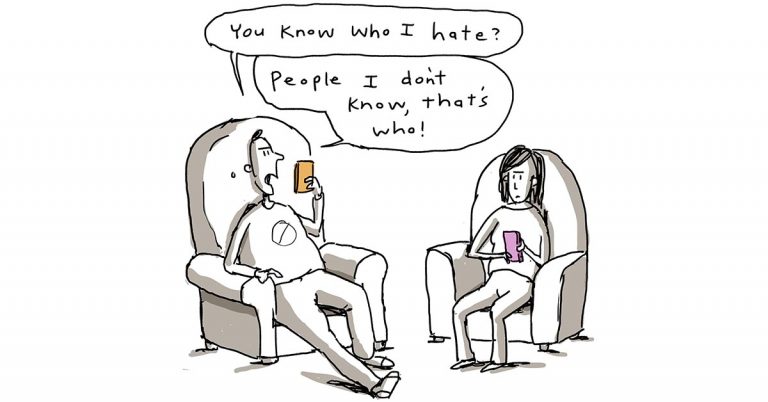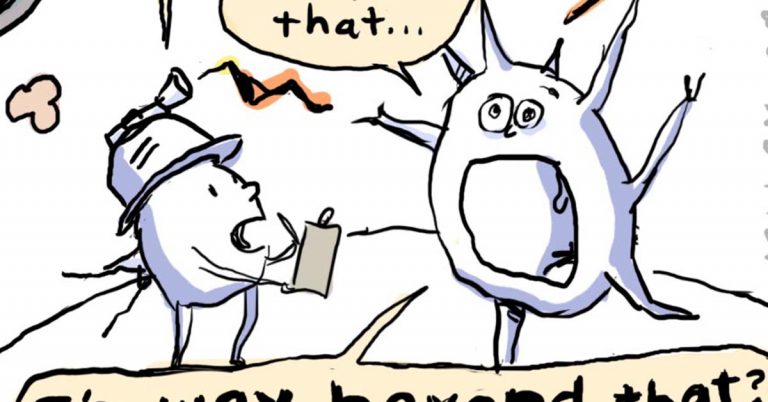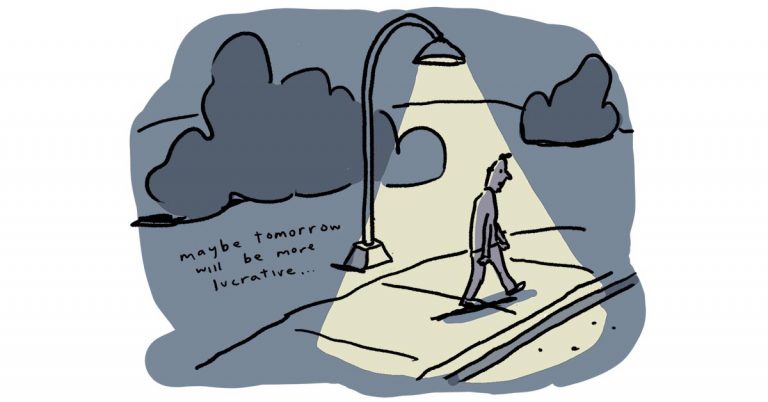Prior to the pandemic, one thing I certainly wouldn’t have thought to prescribe for our already socially malnourished culture was a massive infusion of “social distancing.”
Unless, of course, I was trying to kill it.
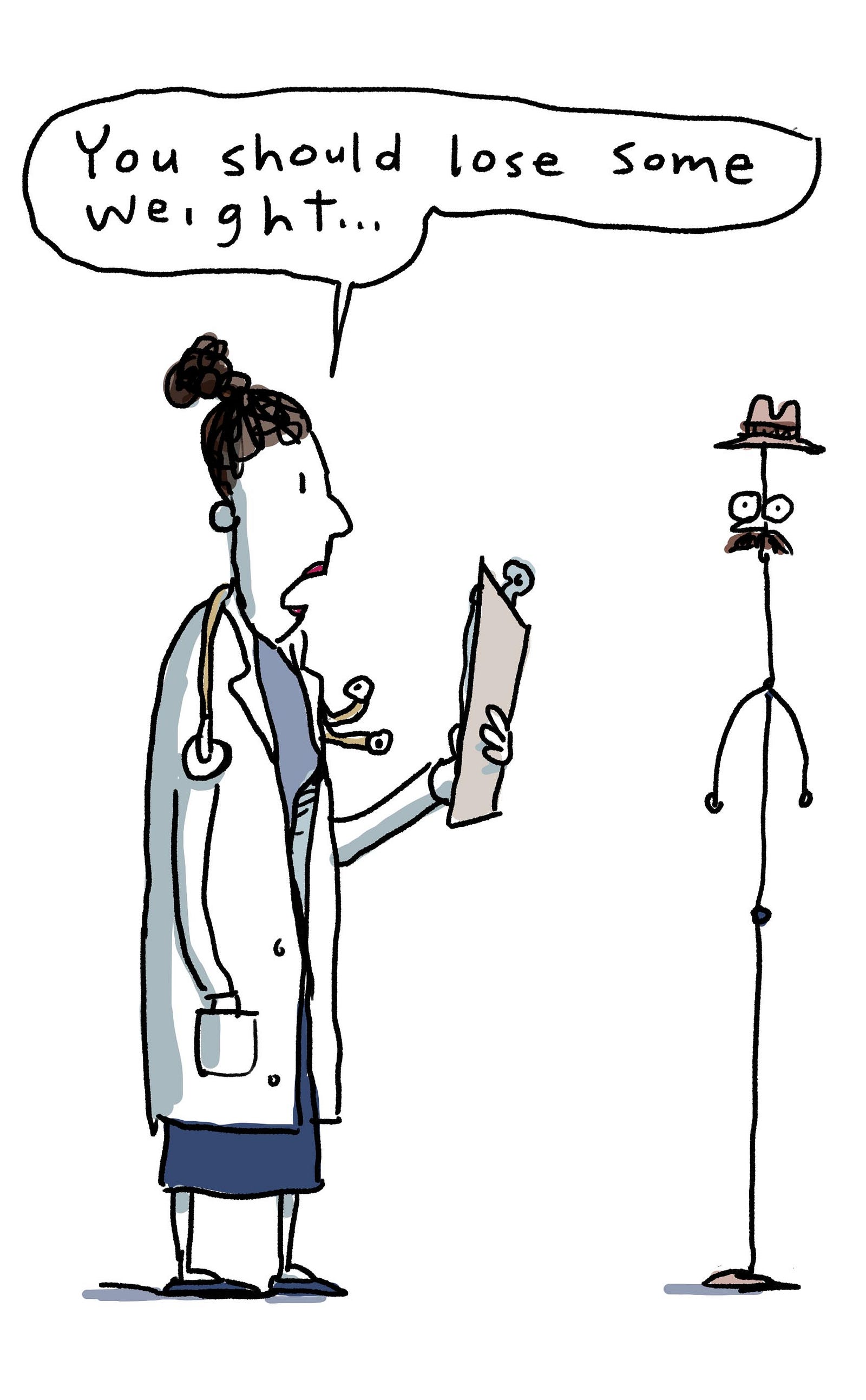
But maybe, witnessing a large-scale social breakdown during the pandemic — while we were at home experiencing our own — will prove to be just what the doctor ordered.
The pandemic pushed into stark relief what has long been building. Our social ties are weakening. Our social skills atrophying. Inequity is growing. Accountability is a memory. And real community has largely been replaced by personalized media streamed into the cocoons of our own cognition.
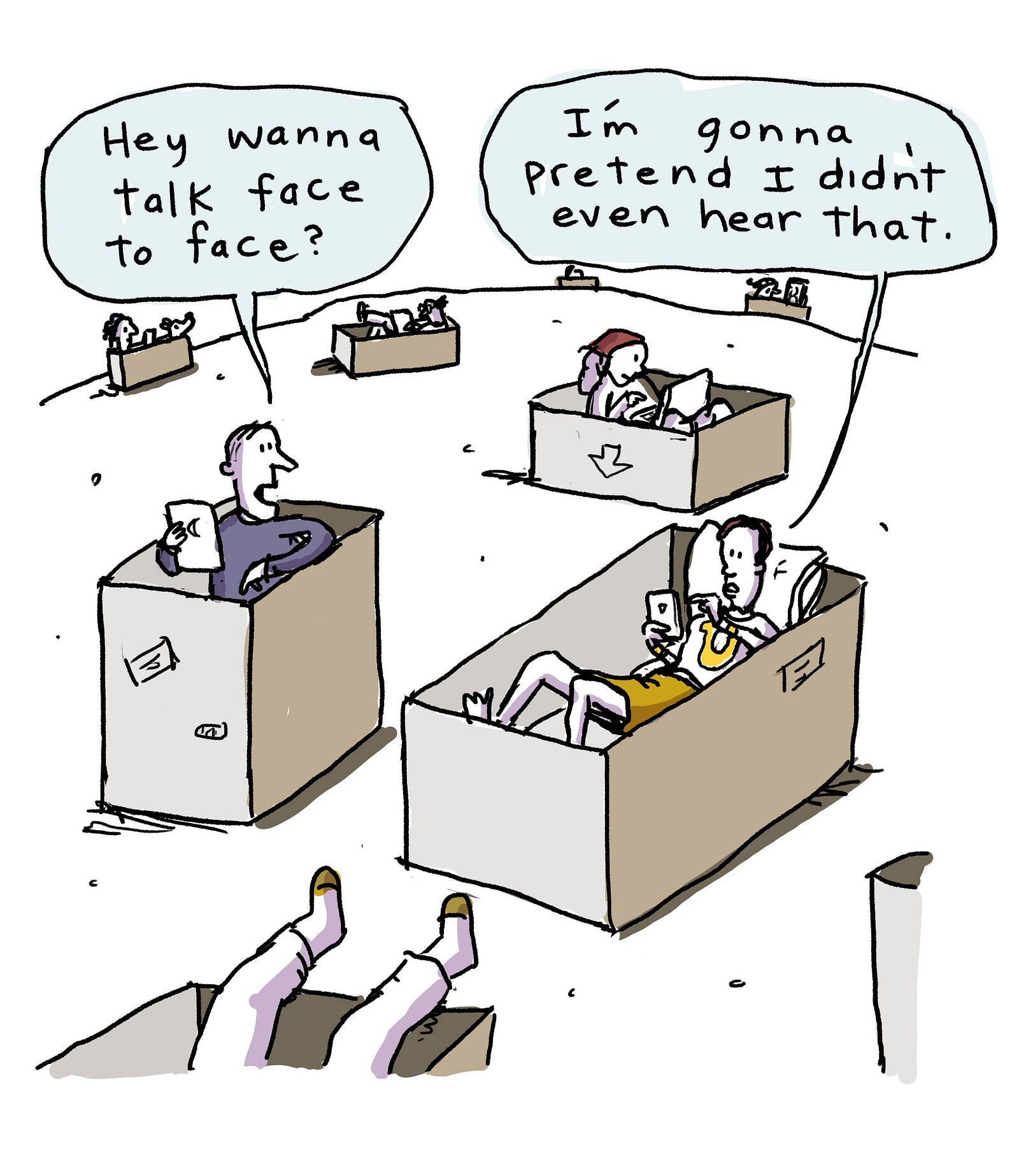
For a long time, this had been the developing story. With lockdown, many of us were suddenly pressing our faces up against it 24/7/365, without leaving the house. All while everything was quickly deteriorating.
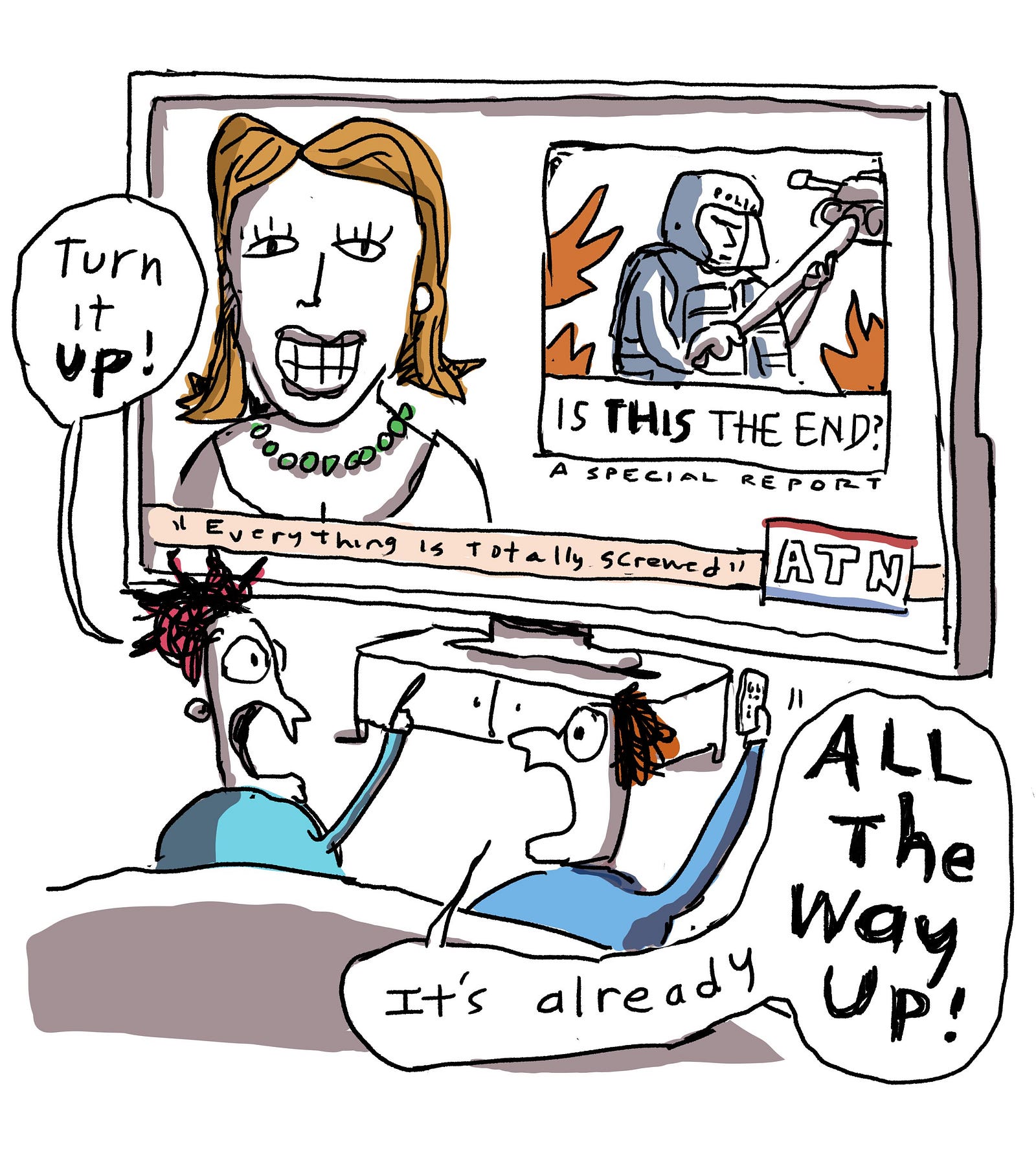
We watched in horror as common decency, trust, and connection were churned into abstract resentments, fear, and suspicion. Both around us and in our own hearts.
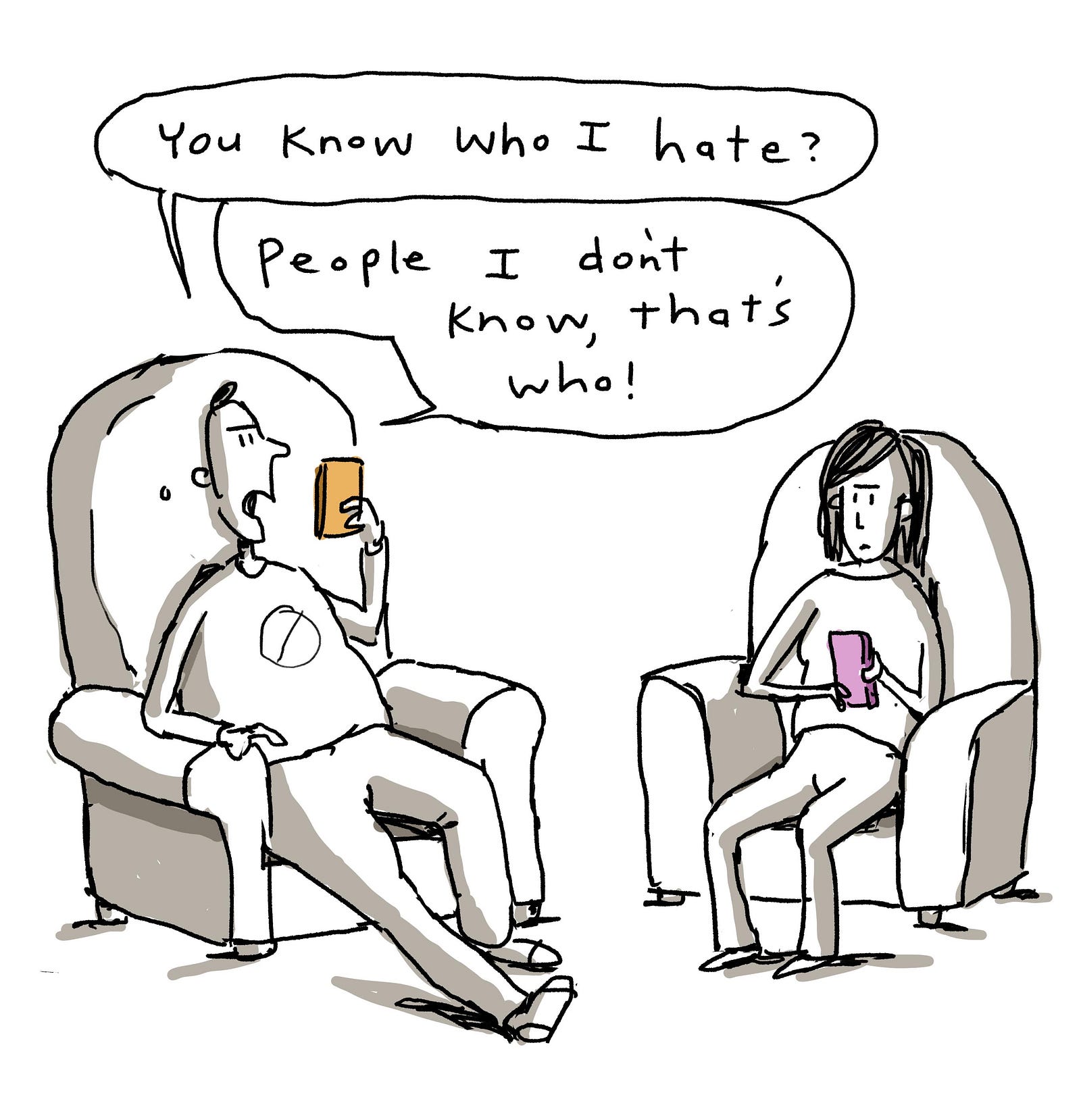
Meanwhile, close, trusting cooperation is the naturally selected reason we ever gained this temporary reign over the globe in the first place. Trusting each other is astonishingly win-win and has won-won us everything we have ever had.
Together we make particle accelerators, flying buses with WiFi, cowless ice cream delivery apps, and a whole bunch of other things that are far too complicated for one person to ever fully comprehend.
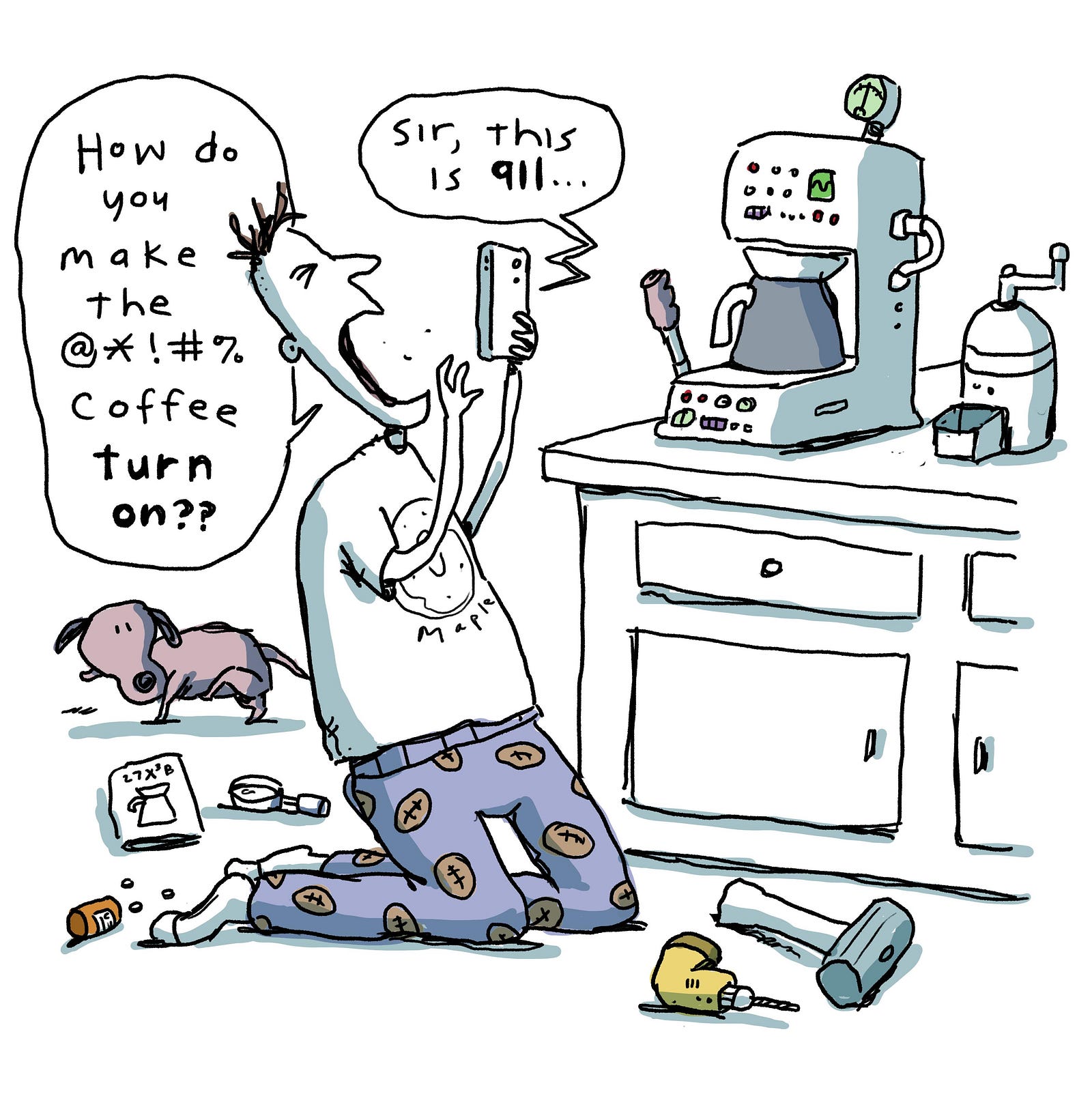
Alone, we’d be lucky to make it through a single day.
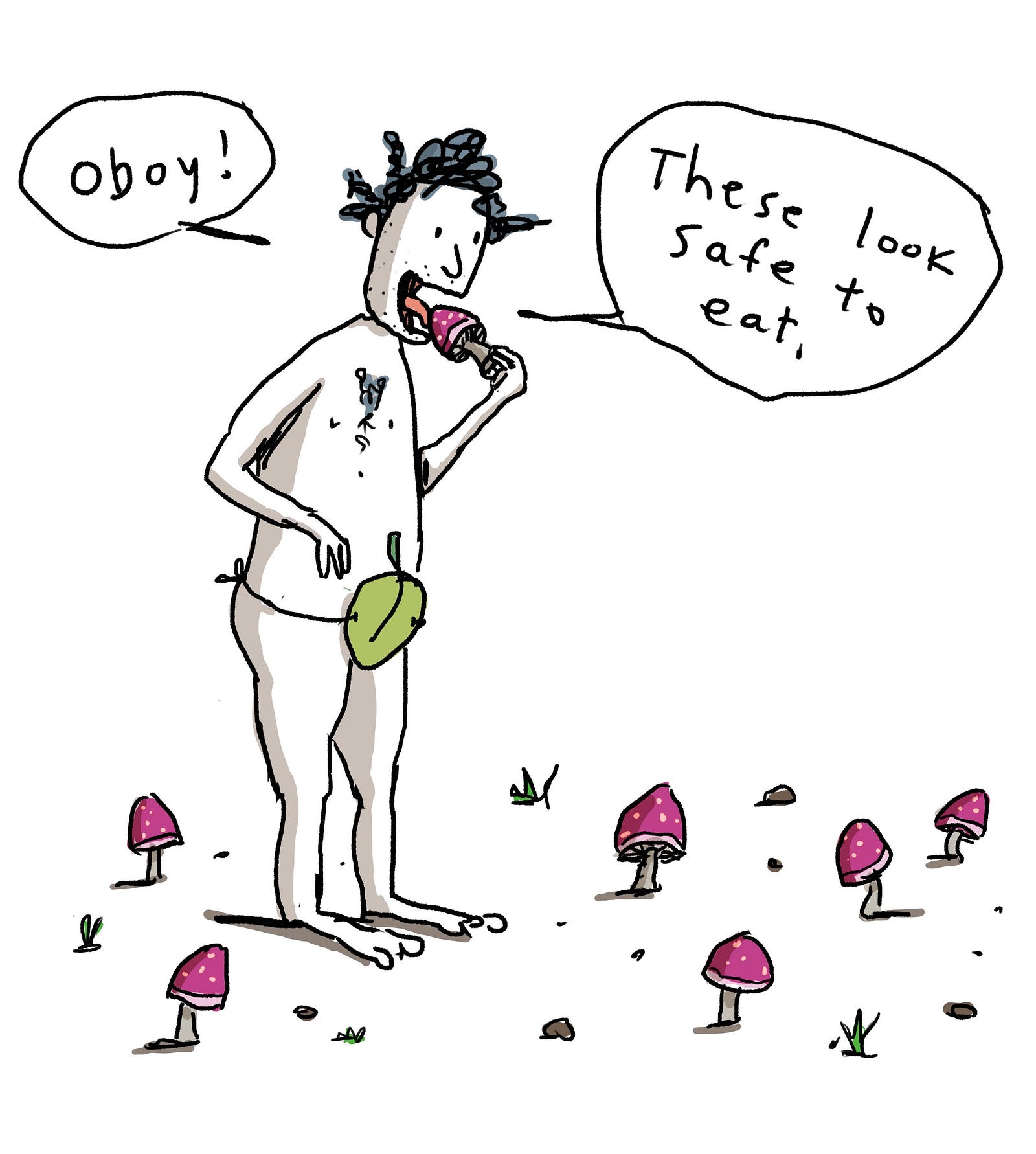
Our cognitive ability to organize, cooperate, and share the collective bounty is our evolutionary superpower. But, in the sprawling, industrial anonymity of today where a sense of belonging is increasingly hard to find, we are facing a major operational challenge.
At this scale, the foundations of accountability, equity, and fairness that allow for our extraordinary arrangement are harder to enforce. Obscured by spin, finger-pointing, and smokescreen complexity, people at the top have skewed the system to their own (perceived) benefit at everyone else’s expense. Seeing this, many of us have naturally lost faith that we’ll ever get our fair share. And suddenly, we’re no longer looking so fit.
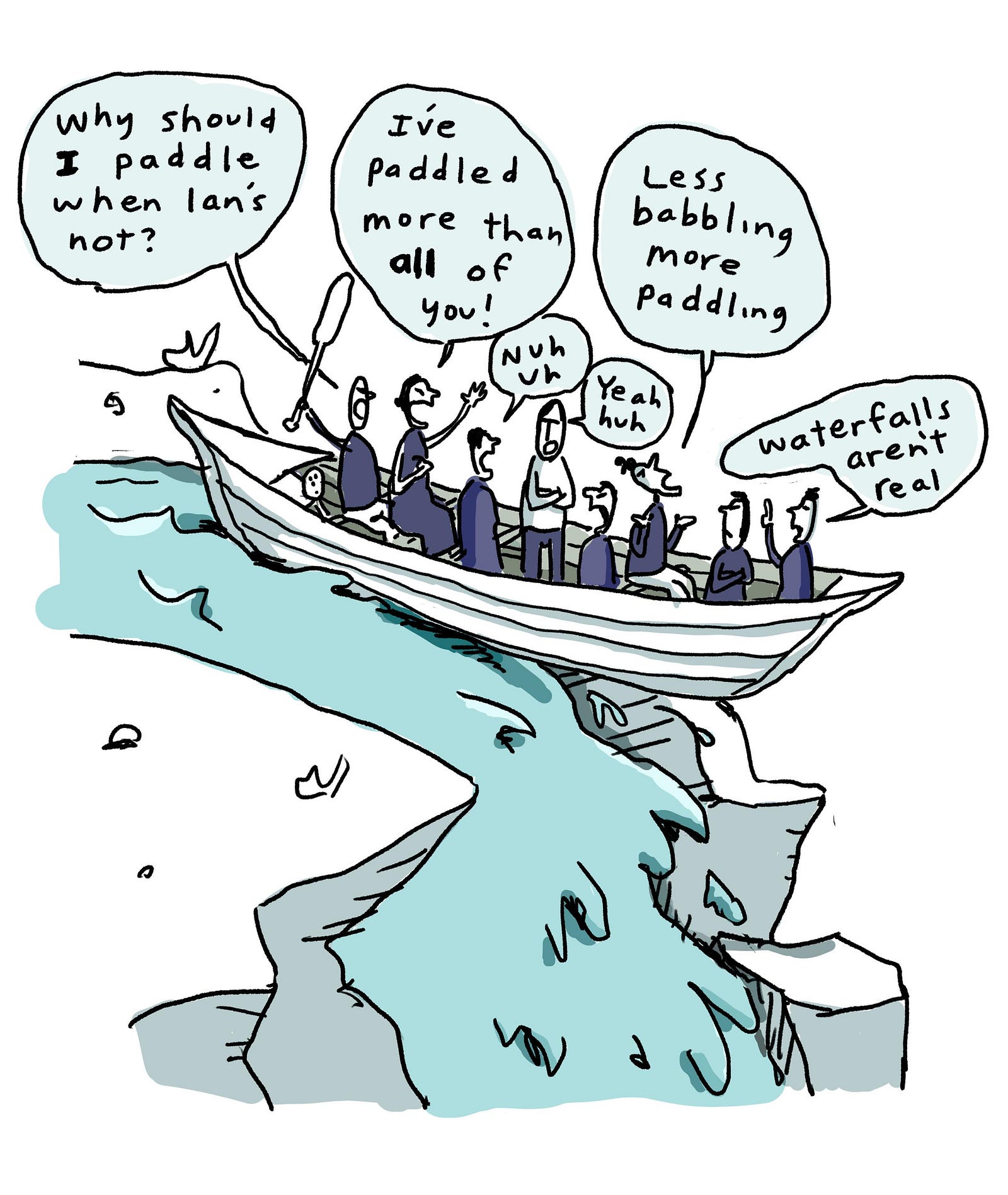
Massive income disparities and a media/power elite that stirs up division for ratings–and more nefarious purposes–are fueling the raging fires of discontent and creating widespread social fractures.
While there are obviously many who see an immediate personal benefit from stoking tribalism, the unavoidable truth is that there is only one tribe. In an age where all production is connected and everyone is visible to each other, and within striking range, there is only one boat, and we’re all in it.
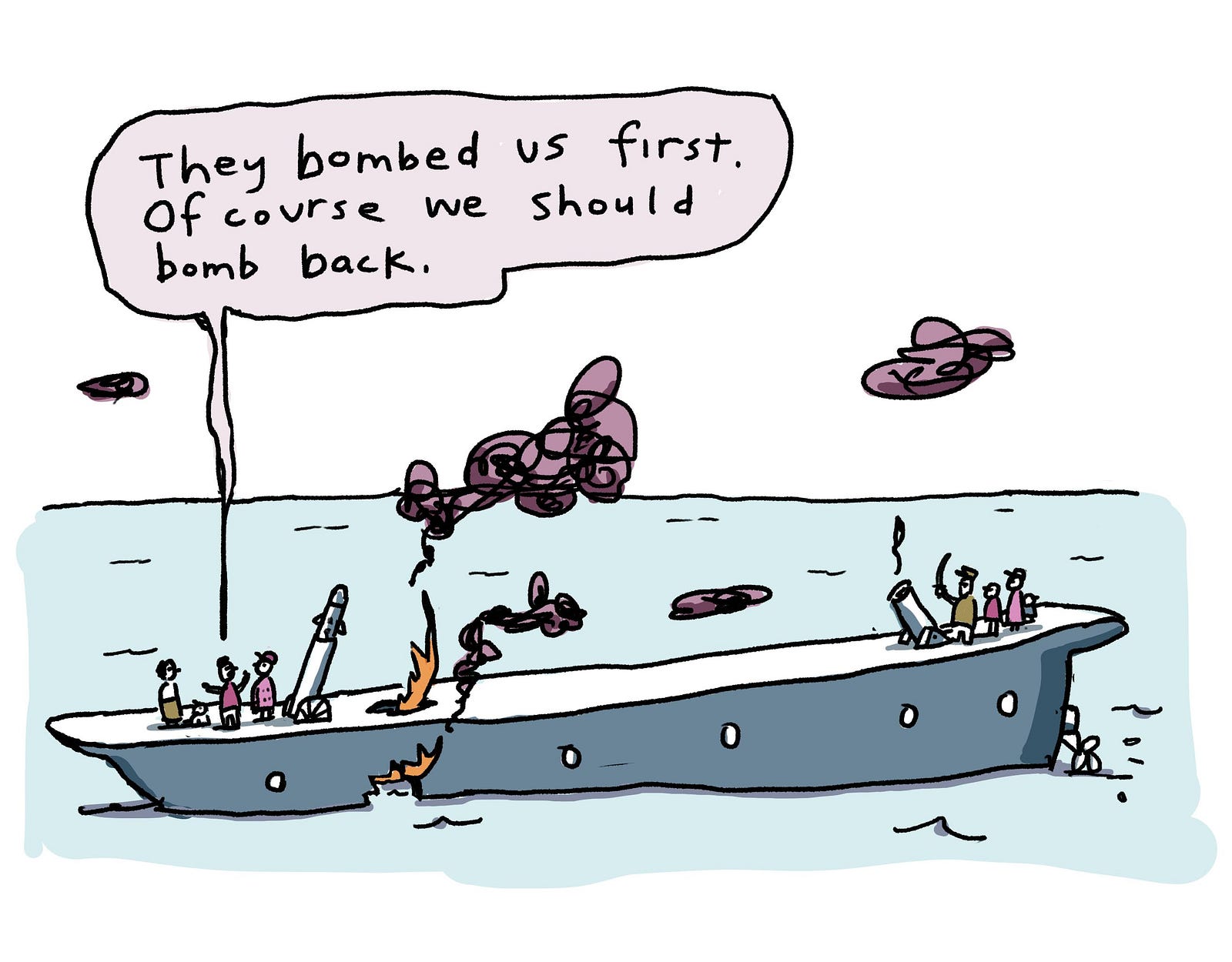
Obviously, some are sucking coal dust in the engine room, while others are up on the top pool deck eating chocolate-dipped doubloons. But, the fact of modern life is that it is in everyone’s interest–including billionaires–to keep our one and only ship afloat.
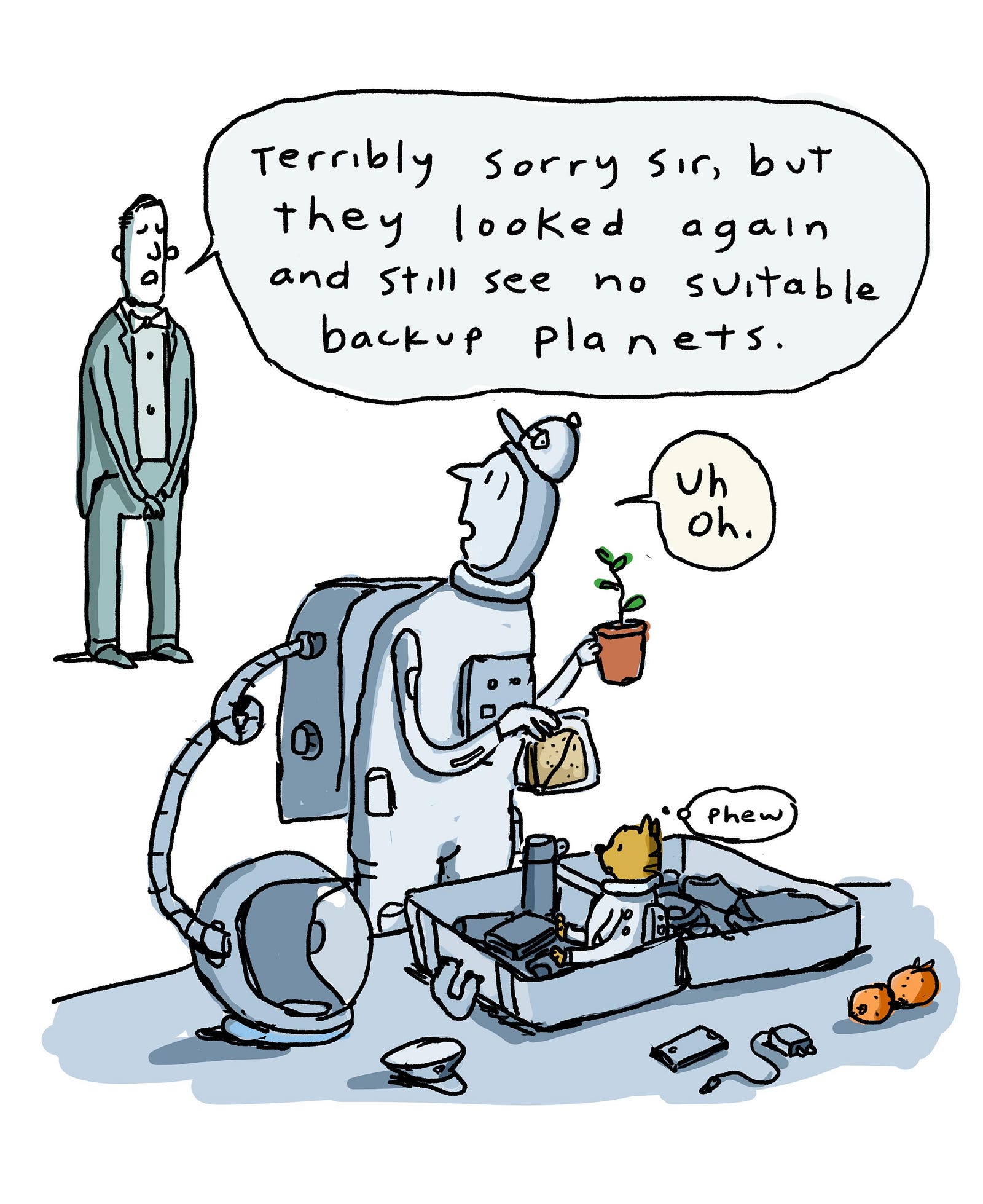
To solve the big problems humanity faces, including the belonging shortage, we need enthusiastic hands at all stations keenly moving in sync. We need the best and brightest of every delineation rising up to lead. We need every last person to happily go to work and do their best at a job they’re good at. And we need everyone to recognize their own personal interest in everyone else feeling similarly satisfied and productive.
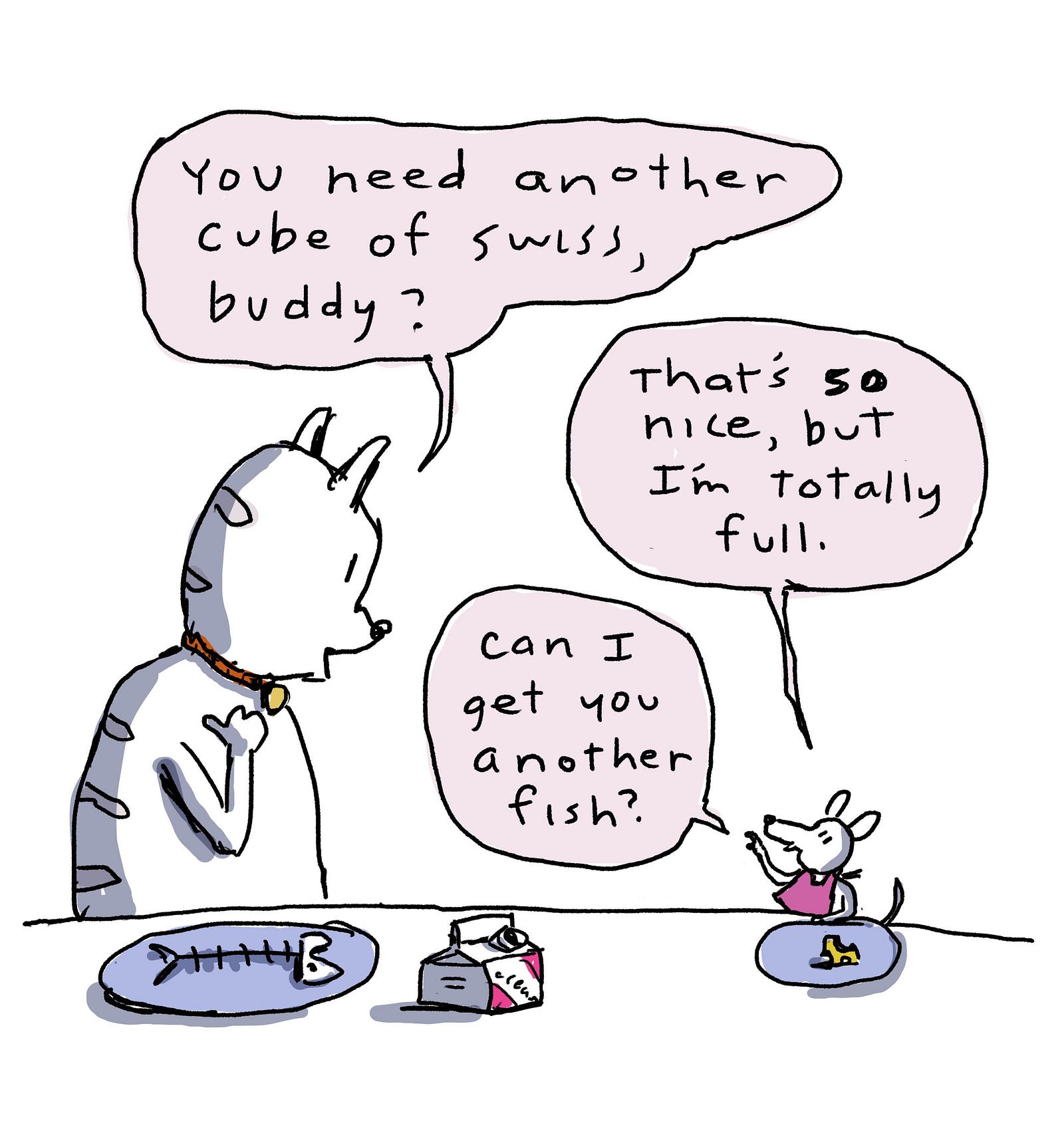
We have no real enemies anymore. We’ve all been inalterably assigned to the same team by powers way beyond our control, and anyone running for anything anywhere that doesn’t loudly assert this basic truth is not someone to follow. Or trust.
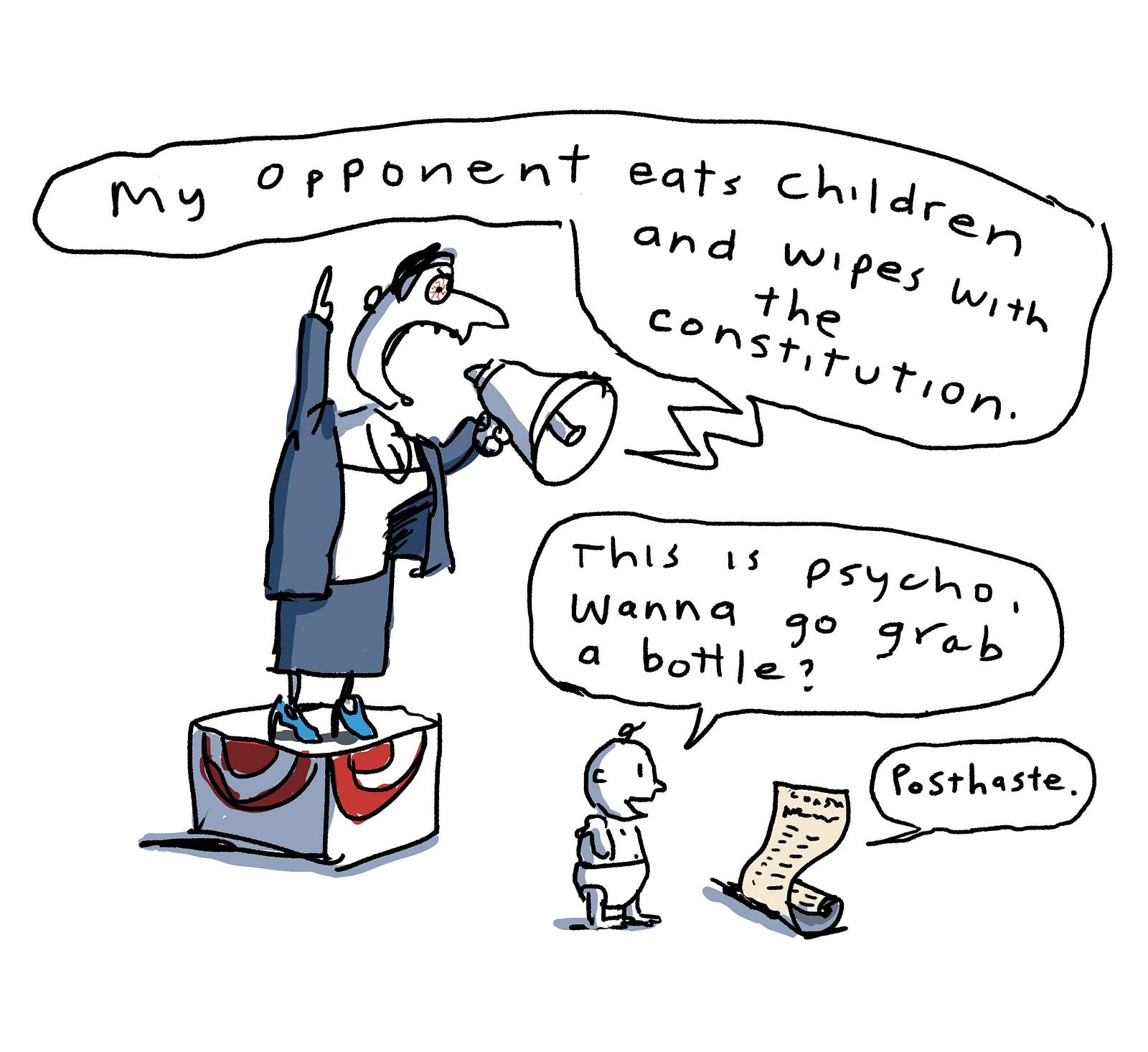
Luckily, we can spot the fakes when we’re really looking. One of the most obvious tells of blind ambition and reckless self-serving is whether someone tears others down. People who understand how our shared toast is buttered don’t want to throw their opponents to the sea since they realize that we’re all better off if everyone remains at the top of their game.
The ship-saving bulletin is that the divide-and-conquerors can not lead without followers. It’s up to us to consider integrity, honesty, transparency, and unity first. It’s up to us to vote according to our common sense survival instincts. When we do, things change.
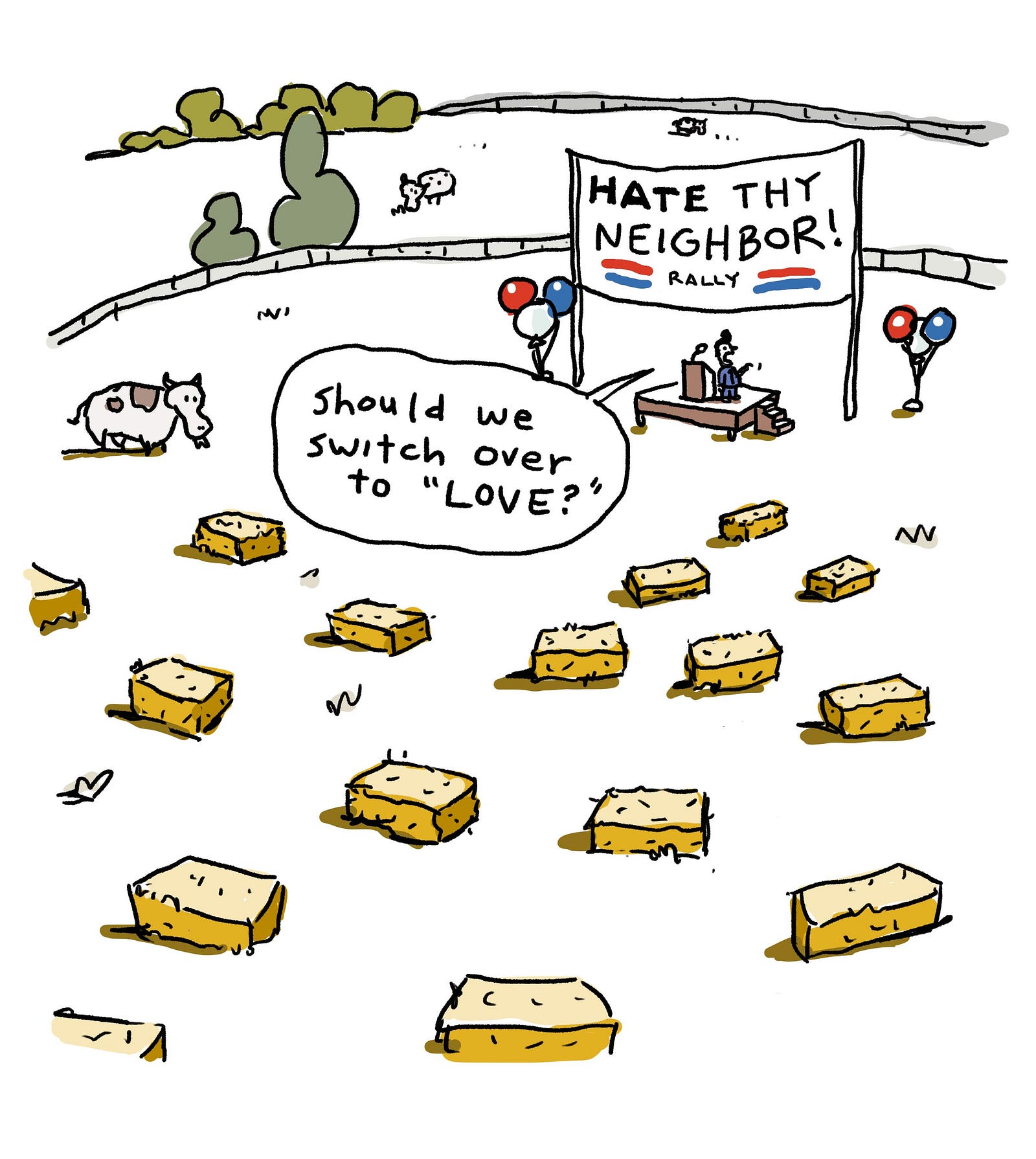
But our considerable collective power is not only demonstrated at the polls. We shape the world every day by how we treat others. The social climate that we create locally ripples in every direction.
What we see influences how we act. And what we do influences what others see. It all matters. When we facilitate belonging and connection, not only are we the real influencers creating the world we want to live in, but we immediately occupy that world in our experience.

However, when we’re sure that we’re on the right side, whatever side that is, and that the other people are bad, we’ve already made the mistake of imagining sides.
There is a lot of confusion about the causes of the lopsided, unfair world that we universally detest. But mistaking the reasons doesn’t put us in different tribes. Quite the contrary. Except for a few nuts, everyone still wants the same thing, a fair shot in a safe, satisfying, and sustainable society.
When we don’t get what we want, we look for someone to blame. (That’s certainly my consistently unfounded instinct.) Tragically, there is profit and perceived personal gain in the blame game. Perhaps the greatest of which is distracting everyone from the real pillaging and plundering.
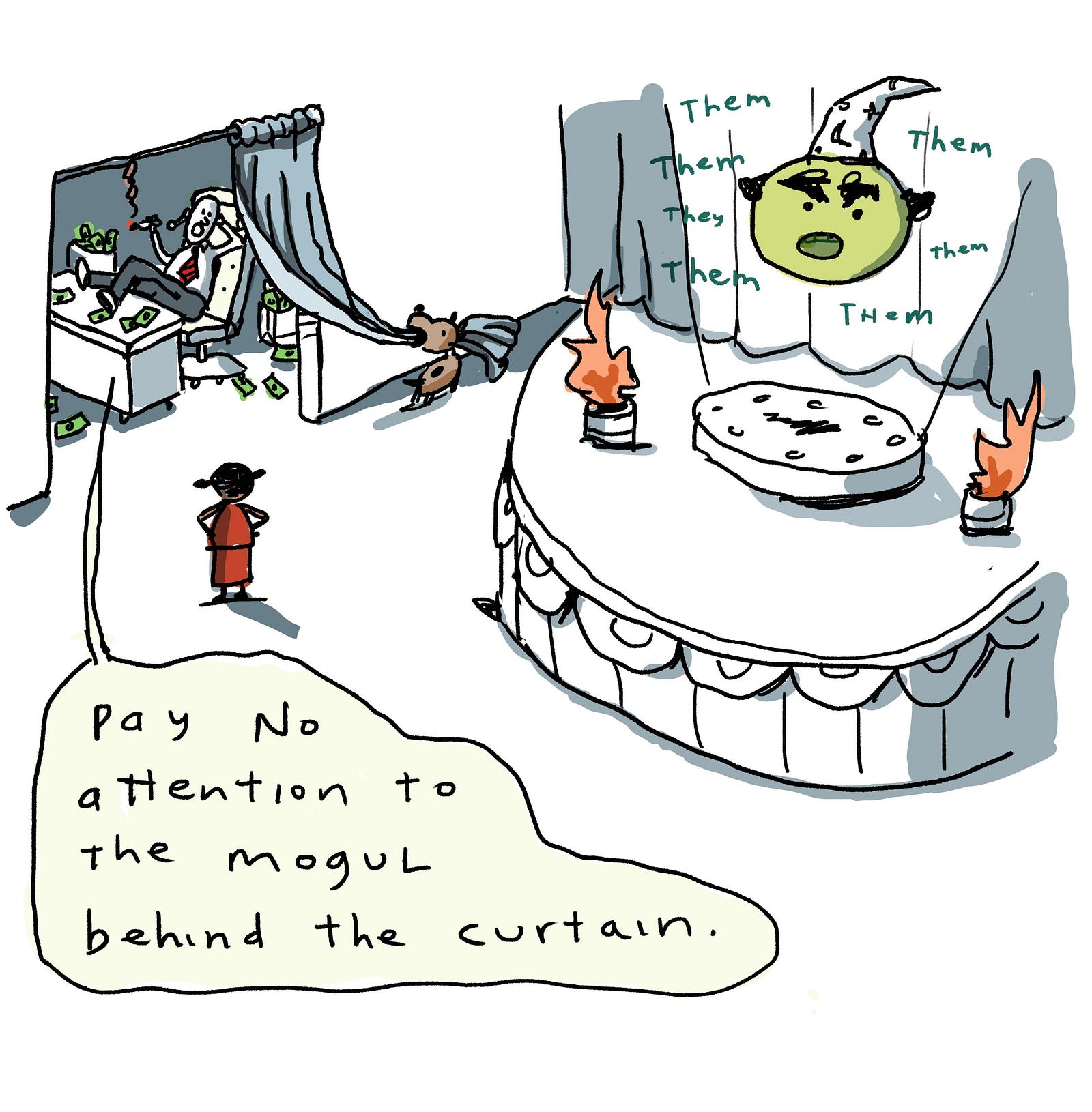
What I’ve seen since the pandemic started has really scared me. And I was already scared. The possibility of reverting to violent oppression by a fear-crazed minority feels way too real. However, in the end, the choice is collectively ours.
We can rediscover that neighbors can be trusted. We can remember that the overwhelming majority of people we have ever encountered, wherever we’ve gone, are inherently decent. It’s up to us to stop letting manipulators warp our minds.
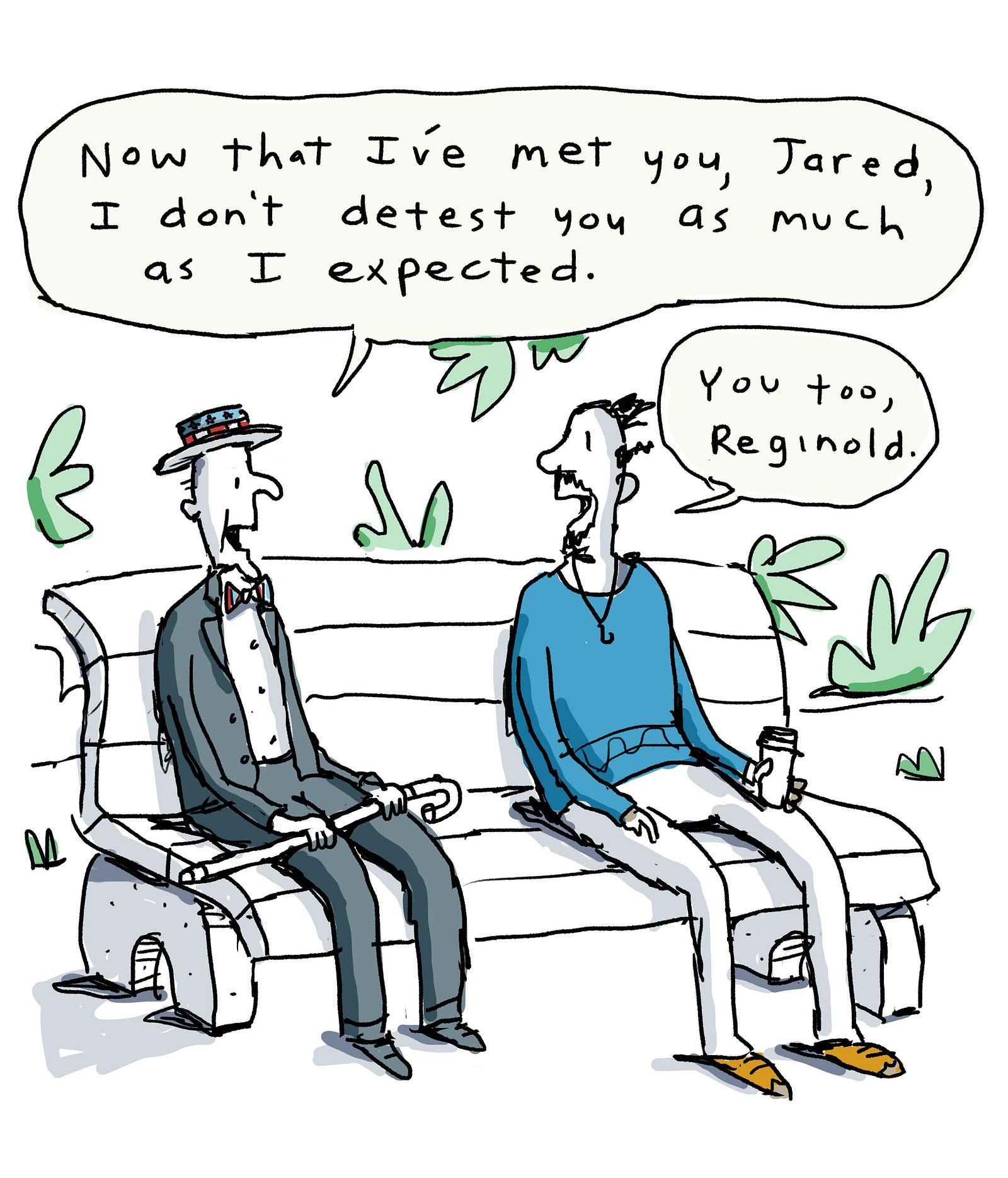
We can still stand up straight for what is obviously right and work creatively and kindly to help others to see it. And we can stop supporting leaders who aren’t committed to transparency, honesty, and unity.
We’ve got this! Together, we have the tools to reconnect, even in this sprawling world. We’re born to get along. If we don’t give up and give in to our irrational fears, we can continue to get along and work together as people have done for a hundred thousand years. Maybe for 100k more.
